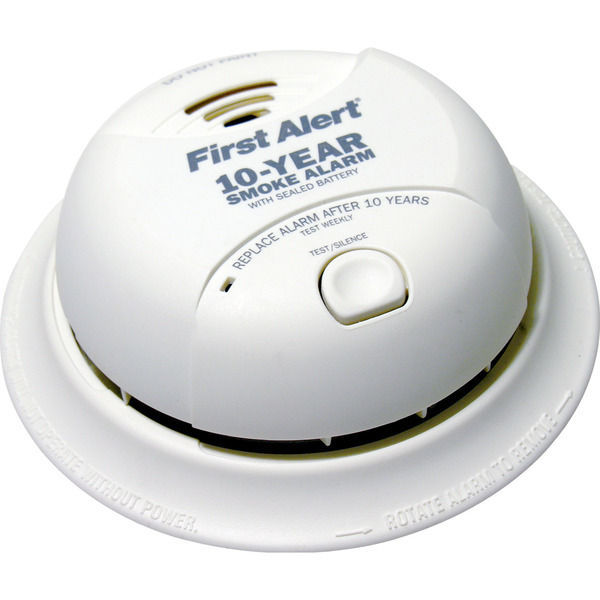Is Your Smoke Detector Still Protecting You?
The effectiveness of your smoke detector diminishes over time, which is why the National Fire Protection Agency (NFPA) recommends replacing smoke alarms every 10 years. If you’ve been replacing batteries longer than that, it’s time for a whole new unit even if the alarm still sounds when you test it. Over the years, build-up from the smoke of smaller fires or even grease particles from your fryer will coat your alarm's sensor and lessen its effectiveness to detect a fire in a timely manner. Smoke alarms were present, but failed to operate in 8% of reported fires, resulting in a 21% fatality from 2009 to 2013.
Good news for bad cooks and everyone who puts off changing the batteries: new smoke detectors can provide a decade of maintenance-free protection and come with a hush button for false alarms like burnt chicken. You may never need to change the batteries again! If you live in California, state law now requires devices with tamper-proof 10-year Lithium batteries for any battery powered smoke detector or combination smoke and carbon monoxide detector. When the low battery chirp starts, just replace the unit for another decade of worry-free protection.
How Many Smoke Alarms Do You Need?
The risk of dying in a home fire is cut in half when the home has working smoke alarms, but you still need to hear or see the alarm for it to be effective. Depending on the size of the dwelling, that may mean more than one alarm. In multi-story dwellings, alarms were 7.5 times more effective in alerting residents of a fire when there was at least one device on every floor. The NFPA requires new and existing homes to have a smoke alarm in every bedroom, outside each sleeping area (such as a converted office or den), and on every level.
What is an Interconnectable Alarm?
Some smoke and combination alarms are interconnectable so that when one alarm detects smoke or carbon monoxide, all connected alarms also go off. Hard-wire alarms are more likely to be interconnectable, but there are battery-operated wireless interconnectable alarms as well. Interconnected alarms were 2.6 times more effective in alerting occupants than standalone devices in a study done by the Consumer Product Safety Commission (CPSC).
What are the Different Levels of Smoke or Fire Detection?
Flaming fires spread quickly, filling a room or house with flames within minutes. Smoldering fires burn long and slow, filling the home with smoke, sometimes before there’s ever a detectable flame. This is an important distinction because while both ionization and photoelectric smoke alarms protect against any house fire, each can offer an earlier warning over the other, depending on the type of fire. Ionization alarms use electrically charged particles to detect smoke and are faster at detecting flaming fires, such as a grease fire or tipped over candle. Photoelectric smoke alarms use light beams to detect the presence of smoke and are faster at detecting smoldering fires, like when the roast is kept in the oven too long. Thankfully, you don’t have to try and predict which type of fire may happen in any given room. Dual ionization sensors use both technologies within the same device. The BRK First Alert 10-year smoke alarm pictured above not only has the sealed Lithium battery, but also has a dual ionization sensor to truly protect your home and family.
Is your smoke detector still protecting you or is it time to change to a new device? If you’re in an apartment building, ask the front office when they last changed the alarms. Even hard-wired devices need to be changed every ten years for maximum effectiveness. Find high quality carbon monoxide and smoke alarms at 1000Bulbs.com. Not sure which one is right for you? Give us a call at 1-800-624-4488 or leave your question in the comments section below.









